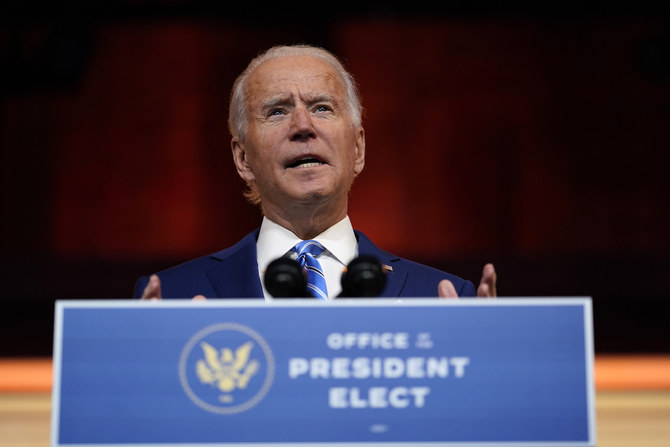
- ARAB NEWS
- 26 Apr 2024

Iran’s chief nuclear scientist Mohsen Fakhrizadeh was assassinated in Tehran on Friday. Fingers are subsequently being pointed at Israel. The US allies in the region are quite worried about a potential Joe Biden overture toward Iran. For many in the region, the main concern is not Iran’s nuclear portfolio as much as it is the malignant activities of Tehran’s proxies, added to its ballistic missile capabilities.
Fakhrizadeh’s assassination shows that America’s allies are preparing for a potential US detente with Iran. The rapprochement that was witnessed during the Obama era does not inspire any optimism. The nuclear deal that was supposed to convince Iran to give up its ideology and focus on prosperity and growth had the reverse effect. In order not to lose face and appear to have bowed to the US in return for some economic perks, the Iranians compensated for its compromise on the nuclear front with an increase in proxy activities, causing havoc in the region. This increase in Iranian activity provoked a reaction on the other side, as the Arab Gulf states felt led down by their American partner and decided to take their security into their own hands. The result was an increase in turbulence and tensions in the region.
Today, as President-elect Joe Biden plans to return to the negotiating table with Iran, which is one of his campaign promises, he faces a dilemma. He wants to go back to the 2015 nuclear treaty but he does not want to repeat the mistakes of the past. He has also promised to work with allies and adopt a multilateral approach.
How can he convince Iran to accept a deal that will include its ballistic missile program and its proxies? Secretary of State Mike Pompeo’s previous 12-point requirement for the lifting of sanctions was met with a flat refusal from the Iranian part. Biden has to modify the nuclear deal, but he also has to introduce conditions that are realistic.
He cannot adopt one of Pompeo’s conditions, which was for Iran to cut all its connections and financing of its proxies in the region. This is because, since its inception, the Iranian regime has positioned itself as the protector of Shiite communities across the Muslim world. It has been nurturing them ideologically, militarily and economically for decades. It will not give up on them just to have the US sanctions lifted.
Since politics is the art of the possible, rather than asking Iran to cut its connections with its proxies, it would be more realistic to ask it to pacify them.
Dr. Dania Koleilat Khatib
In addition to the emotional attachment between Iran and its proxies, Tehran sees them as a deterrent. Iran views itself as being in a hostile environment. Soon after its inception in 1979, the regime’s neighbors financed Saddam Hussein to launch a war against it to contain the export of the Khomeinist revolution. Added to that, embargoes meant Iran was not allowed to modernize its arsenal. Therefore, the regime sees its proxies as elements that can create a balance of power or even a balance of terror between Iran and its neighbors.
Since politics is the art of the possible, rather than asking Iran to cut its connections with its proxies, it would be more realistic to ask it to pacify them. In this respect, Hezbollah offers a good example. The group is suffering from Israeli strikes in Syria, while there is talk of a possible overture toward its backer Bashar Assad on Israel. Hence, the Syrian regime’s support for the group seems shaky. Meanwhile, at home in Lebanon, US sanctions are starting to exhaust the group. Hezbollah is also facing popular wrath, as it is seen as being part of the corrupt political class that has led the country down the drain.
In this scenario, Hezbollah might be able to compromise if it is offered guarantees that will secure its survival, while giving it a graceful exit. So the Biden administration has a chance to score a win in Lebanon by striking a deal with Hezbollah and Iran.
The US can give Hezbollah guarantees that Israel will not strike its facilities or target its personnel. Israel could also commit to defining its borders with Lebanon and withdrawing from the Shebaa Farms. In return, Hezbollah could put its arsenal under the supervision of the Lebanese Army and the Lebanese state could, in turn, sign a non-aggression pact with Israel that would not include a normalization of relations but would release the two countries from mutual aggression. This would be an easy win for the Biden administration. It would stabilize Lebanon and could pave the way for a larger deal with Iran.